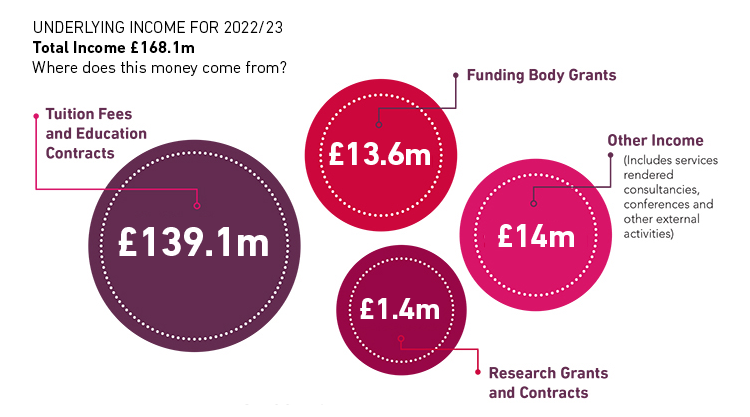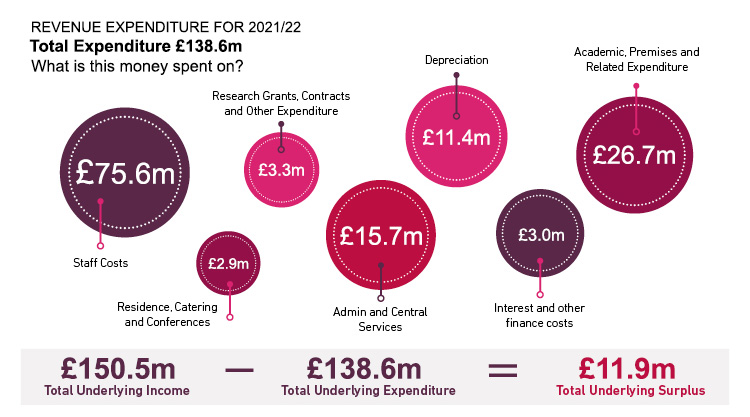What income do we generate and what does the money get spent on?
A detailed breakdown of the University's income and expenditure for 2021/22:

Income
Income is generated through different activities which mainly include academic tuition fees, government grants, consultancy, research and commercial income such as conferences, catering, accommodation and nurseries.
Expenditure
Expenditure (costs) is incurred for a variety of reasons, whilst always putting students at the heart of everything we do. As you will see below and would expect, staff costs are the sector's biggest expenditure. Staff costs are paid for by all income streams. Some staff are appointed for fixed periods of time to do work on a specific project whilst the majority of staff, particularly professors and lecturers are funded from a combination of grants, tuition fees and contributions from externally funded activities such as research and consultancy. We have no zero hour contracts and a very small amount of casual staff.

Non-Pay Expenditure
Non-pay Expenditure mainly include the running costs in maintaining our estate and providing a service, utility bills, bursaries to students, payments to the Students' Union and our partner colleges, library costs including books and periodicals, teaching equipment, software licenses, subscriptions, post, project costs, telephones, printing costs, catering and accommodation costs. These are the largest spend items.
Depreciation is a non-cash expense that reduces the value of an asset over time. It is a charge to the Income and Expenditure account due to a reduction in the value of an asset in the balance sheet over time, in particular to wear and tear and the useful life of the asset. These fixed assets mainly include buildings and significant spend on larger items such as major refurbishments in relation to teaching rooms and laboratory upgrades, larger and more expensive items of teaching equipment, network upgrades and computer equipment.